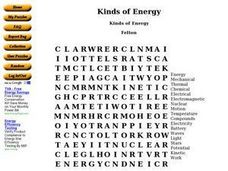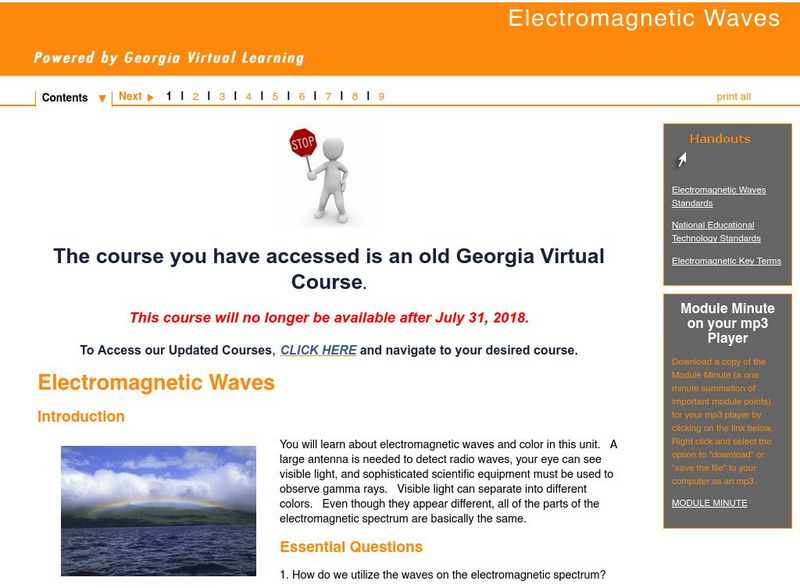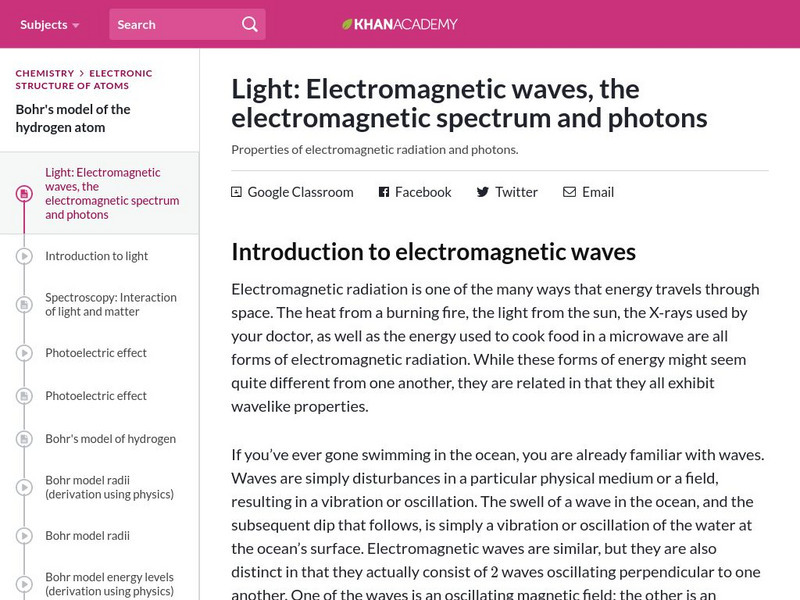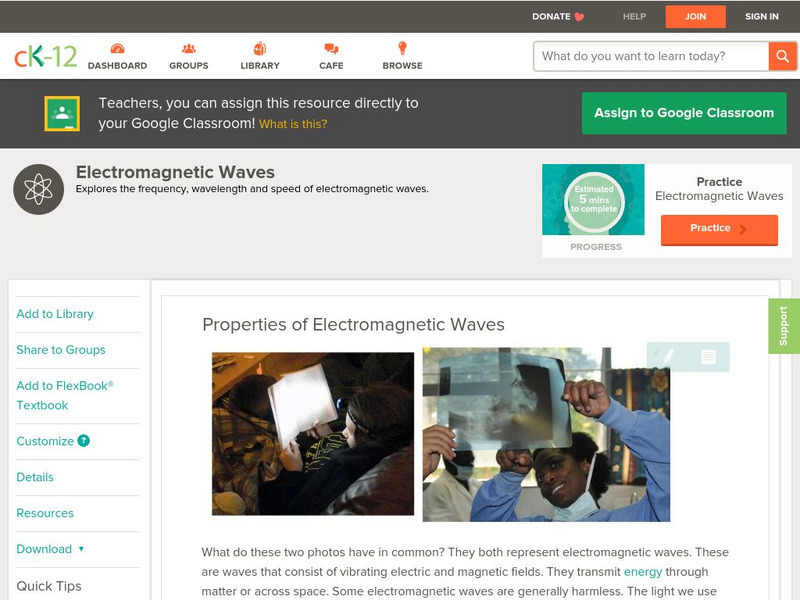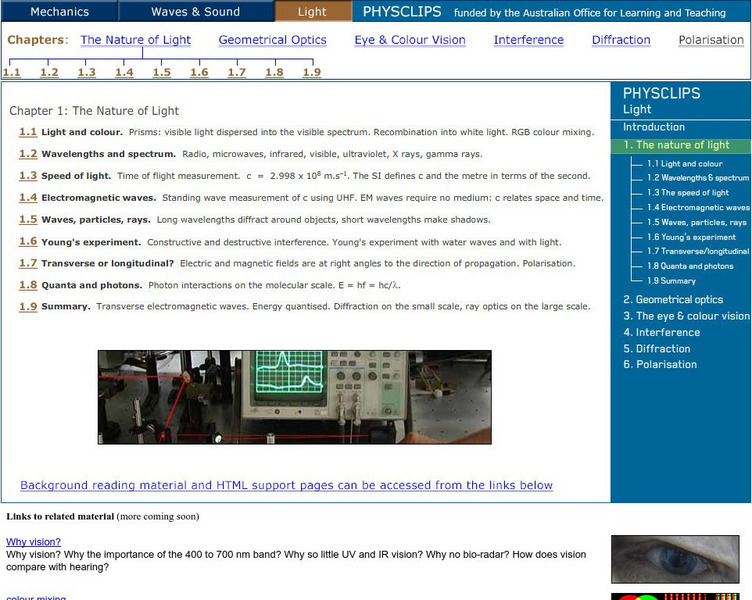Curated OER
Automated Vehicle Programming Design
Young scholars design a program to make an automated vehicle perform a specific task. For this robotics lesson, students play the role of scientists competing to win a factory's contract. They present their algorithm to class.
Curated OER
Investigation of Hooke's Law Lab
Young scholars determine the spring constant by conducting an investigation. In this physics lesson, students collect data and create a graph of force vs. displacement. They compare the results of two different methods to find spring...
Curated OER
Kinds of Energy Word Search
In this energy word search puzzle, students identify types of energy and related terms. They identify 18 words from a given list. An answer sheet is provided.
Curated OER
Determining Red-Shift in a Receding Star
Students practice manipulating algebra formulas with more than one variable. They examine the topics of velocity, wavelength and frequency. They determine the amount of red-shift in a receding star.
Curated OER
Radiation Crossword Puzzle
In this radiation worksheet, students complete a crossword puzzle by figuring out the vocabulary terms associated with the 25 clues given.
Curated OER
Magnetic Discovery Bottle
Students examine how to conduct simple investigations and use simple equipment to gather data. In this magnet lesson students decide what types of objects are attracted to magnets.
University of Colorado
University of Colorado: Physics 2000: Electromagnetic Waves
Using a student-teacher dialogue format, this page discusses the nature of light as an electromagnetic wave and the electromagnetic spectrum.
Georgia Department of Education
Ga Virtual Learning: Electromagnetic Waves
Through informational text, interactive activities, practice problems, and virtual simulations, students explore the properties of electromagnetic waves.
Georgia Department of Education
Ga Virtual Learning: Electromagnetic Waves and the Wave Nature of Light
In this interactive lesson about electromagnetic waves students will explore what they can see, what they can't, and what they know about the wave nature of this thing called "light."
University of Colorado
University of Colorado: Physics 2000: More About Visualizing Electromagnetic Waves
Discusses the nature of an electromagnetic wave. Explains the oscillating electric field and represents it through clever graphics and animations.
Khan Academy
Khan Academy: Electromagnetic Waves: The Electromagnetic Spectrum and Photons
An article that discusses the coupling of an electric field with a magnetic field to create electromagnetic waves. Article also discusses how different types of electromagnetic waves have different wavelengths which forms the...
CK-12 Foundation
Ck 12: Physical Science: Properties of Electromagnetic Waves
[Free Registration/Login may be required to access all resource tools.] The speed of electromagnetic waves, their wavelengths and frequencies and how to calculate wavelength or wave frequency.
University of Maryland
University of Maryland: Optics, Electromagnetic Waves
This site from the University of Maryland provides part of an anecdotal history of optics and the study of light. Extremely thorough treatment of how scientists came to believe in the wave nature of light, the idea of an electromagnetic...
TeachEngineering
Teach Engineering: Exploring the Electromagnetic Spectrum
Students learn the basics of the electromagnetic spectrum and how various types of electromagnetic waves are related in terms of wavelength and energy. In addition, they are introduced to the various types of waves that make up the...
PBS
Pbs Learning Media: The Electromagnetic Spectrum: Frontline
This video segment adapted from FRONTLINE introduces the electromagnetic spectrum and explains how the various types of electromagnetic waves are distinguished by the amount of energy each wave carries.
CK-12 Foundation
Ck 12 Exploration Series: Simulations: Physics: Light Wave
[Free Registration/Login Required] Are there colors we don't see? This simulation addresses that question by exploring light as an electromagnetic wave. Learn how the electromagnetic wave relates its wavelength and frequency to the...
Science Buddies
Science Buddies: How Does Color Affect Heating by Absorption of Light?
Light is an example of an electromagnetic wave. Electromagnetic waves can travel through the vacuum of interstellar space. They do not depend on an external medium-unlike a mechanical wave such as a sound wave which must travel through...
Physics Classroom
The Physics Classroom: Light Waves and Color
The behavior of light waves is introduced and discussed. Also, polarization, color, diffraction, and interference are introduced and discussed thoroughly as supporting evidence of the wave nature of light.
NASA
Nasa: Imagers: The Electromagnetic Spectrum
NASA site provides information on waves, electromagnetic waves and their wavelengths.
Khan Academy
Khan Academy: Light: Electromagnetic Waves, Electromagnetic Spectrum and Photons
This article discusses the properties of electromagnetic radiation and photons.
TeachEngineering
Teach Engineering: Visible Light and the Electromagnetic Spectrum
In this lesson, the electromagnetic spectrum is explained and students learn that visible light makes up only a portion of this wide spectrum. Students also learn that engineers use electromagnetic waves for many different applications.
University of New South Wales (Australia)
University of New South Wales: School of Physics: Physclips:the Nature of Light
Physiclips thoroughly presents mechanics concepts about light with animations and film clips. Learn about light and color, wavelengths, speed of light, electromagnetic waves, Young's experiment, and photons.
University of Maryland
Optics Highlights: Optics, Electromagnetic Waves, Quanta
Part of an anecdotal history on optics and the study of light. Extremely thorough treatment of the scientific evidence which led scientists to believe in the particle nature of light. Includes a short biographical sketch and discusses...
NASA
Nasa: Tour of the Electromagnetic Spectrum: Visible Light
Visible light waves are the only electromagnetic waves we can see. We see these waves as the colors of the rainbow. Each color has a different wavelength. Red has the longest wavelength and violet has the shortest wavelength. When all...




